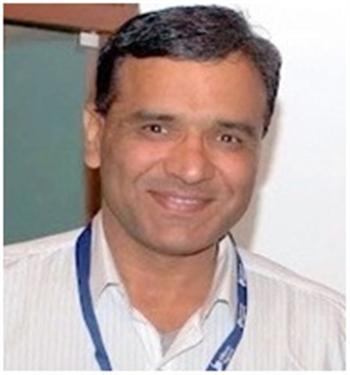Chandigarh February 13, 2019
Dr. J.S. Sehrawat, Assistant Professor, Department of Anthropology, Panjab University, Chandigarh, has been awarded full Travel Grant by Science and Engineering Research Board, Department of Science and Technology, Govt. of India (SERB-DST), to present his Three research papers at 71st Annual Conference of American Academy of Forensic Sciences at Baltimore, Maryland, USA from 18th to 23rd February, 2019.
It may be recalled that Dr. Sehrawat is working as principal investigator for the biological profiling of Ajnala skeletal remains excavated from an abandoned well at Ajnala (Amritsar), and DST has provided him financial support to carry out this research project. Thousands of unknown human skeletal remains along with contextual items of identity were unearthed from an abandoned well situated underneath a religious structure at Ajnala in early 2014 and these remains were handed over to Dr. Sehrawat for establishing their identity. Dr. Sehrawat has research collaborations with St. John’s University, Canada, Max Planck Institute, Germany, BSIP, Lucknow, IIT Roorkee and SDM Dental Institute, Dharwad towards identification strategies of Ajnala skeletal remains. Keeping in view of his contributions in diverse fields of forensic sciences, he has been credited with the Associate Member of American Academy of Forensic Sciences in Forensic Anthropology section. Forensic experts of diverse sub-disciplines from all across the world will deliberate their research results and practical experiences in this international conference of very high repute.
In his first Oral presentation, he will describe the age and sex estimations of Ajnala dental remains from their elemental composition, odontometrics and pulp-tooth area ratio, and thus will highlight the importance of application of a multitude of scientific techniques for the most accurate and reliable forensic results. He claimed that we are just very near to conclude the biological identity of the Ajnala skeletal remains; though declined to divulge further details citing the ethical restrictions before the presentation or publication of the findings.
In his second Oral presentation, Dr. Sehrawat will present the critical appraisal of current status of forensic anthropological inputs in forensic death investigations in India. The discipline has yet not been recognized as a distinct scientific discipline and there exists a distinct professional void among the experts dealing with human skeletal remains regarding their role in forensic death investigations. He exampled a number of criminal cases like Nithari killings, Nirbhaya gangrape case, Sheena Bora murder case, 26/11 Mumbai Terror/Ajmal Kasab case etc., where forensic anthropological inputs have helped the investigating agencies for conclusive decisions. He stressed that a well thought approach is needed to recognize the contributions and assistance of forensic anthropologists in forensic death investigations; particularly in cases of mass disasters or in cases where only skeletonized remains are recovered from the crime scenes or other forensic situations.
His third paper is co-authored with Ms. Monika, UGC-SRF, IFSC, Panjab University, and is a poster presentation about the comparative teeth measurements and the extent of sexual dimorphism among modern and ancient teeth.




